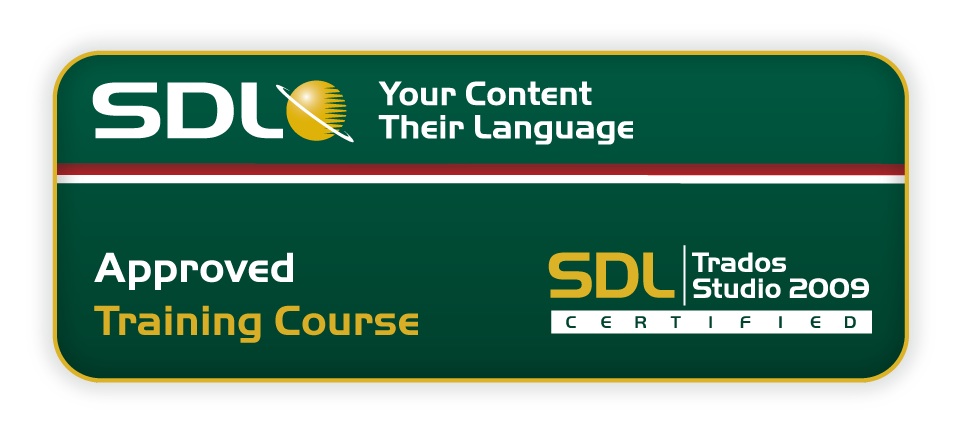Learning Objectives:
This course is designed to teach attendees some of the more detailed functionality available in SDL Trados Studio 2009, building up their knowledge and increasing productivity.
At the end of this course attendees will be able to:
• translate multiple files (MS Word and MS PowerPoint)
• open and translate a PDF document
• understand how to undertake Quality Assurance using the QA Checker
• how to configure Translation Memories
• DTP file formats
• creating AutoSuggest™ dictionaries
• customizing keyboard shortcuts
Target Audience:
This course is for Translators who have already started to work with SDL Trados Studio 2009 and may have already attended the SDL Trados Studio 2009 or the Upgrade from SDL Trados 2007 to SDL Trados Studio 2009 course.
Prerequisites
An understanding of the following functionality gained by training course attendance or by experience working with SDL Trados Studio 2009:
• views and user profiles
• how to create a new translation memory
• how to increase translation speeds when translating an MS Word document using the extensive range of new features
• how to open and import project packages
• how to translate package content
• how to create and return a completed project package
SDL TRADOS Certification
This course provides all of the knowledge attendees need to pass their SDL Trados Studio 2009 Level 2 exam (available September 2009).
The SDL TRADOS Certification program enables individual translators and project managers to validate their knowledge and expertise in the use of SDL Trados products. Achieving SDL TRADOS Certification demonstrates that you are fully prepared to work with the world’s leading translation technology.
Certification in SDL Trados Studio 2009 product can be achieved by taking the following web based exams:
• SDL Trados Studio 2009 Getting Started Level 1 exam
• SDL Trados Studio 2009 Intermediate Level 2 exam
• SDL Trados Studio 2009 Advanced Level 3 exam
The exam questions are based on the topics covered in the corresponding SDL Trados Studio 2009 course e.g. attendance on the SDL Trados Studio 2009 Getting Started course, followed by practical experience of the topics covered, will prepare attendees to take the SDL Trados Studio 2009 Level 1 exam.
Each exam consists of 40 questions and lasts 40 minutes. Attendees take their exams by logging into their SDL My Account and selecting the My Certification area, where their exams and corresponding training manuals can be found.
Attendees will be advised on completion of their exam whether they have passed or need to retake.
Further Development
To further deepen their knowledge and increase productivity, we recommend attendance on the following courses:
• SDL Trados Studio 2009 Advanced – Level 3 Certification. See sessions listed
here
Attendees should also consider attending the SDL Trados MultiTerm 2009 course, which will teach them the key functionality of SDL Trados MultiTerm 2009.
Further Information
For further information on any of our courses, training delivery options and course dates, the SDL TRADOS Certification programme or course fees please
contact us 


